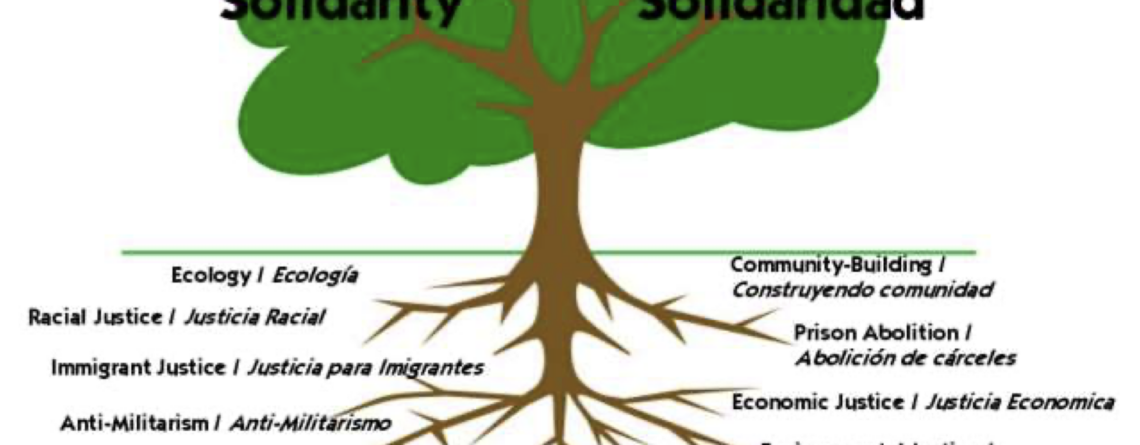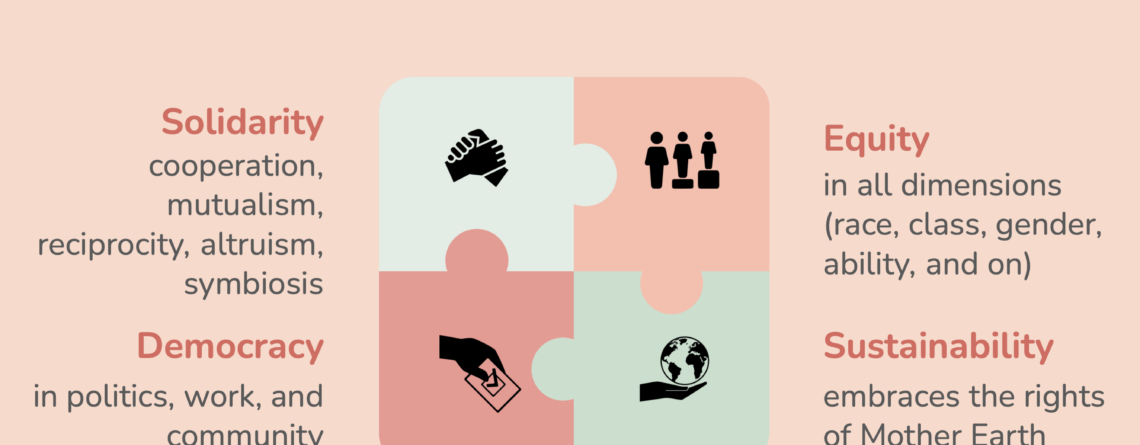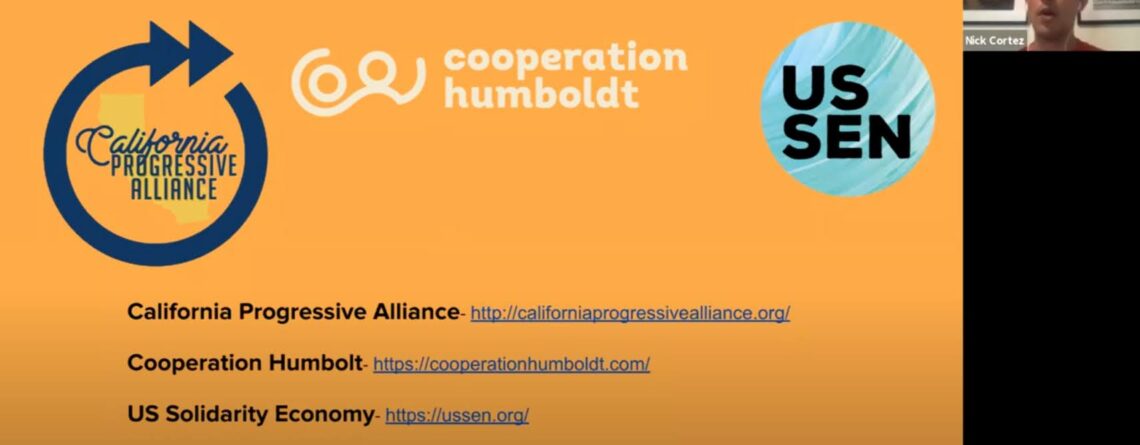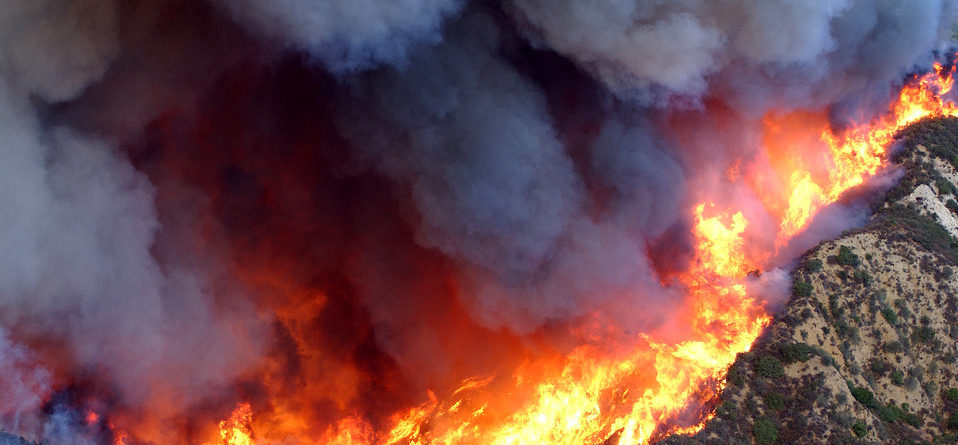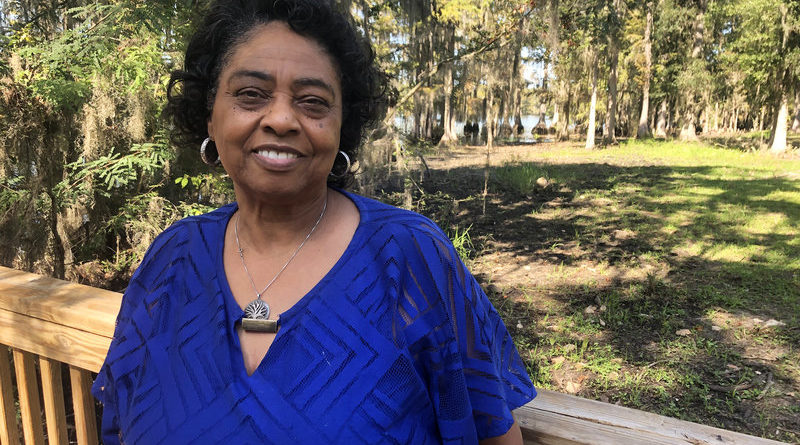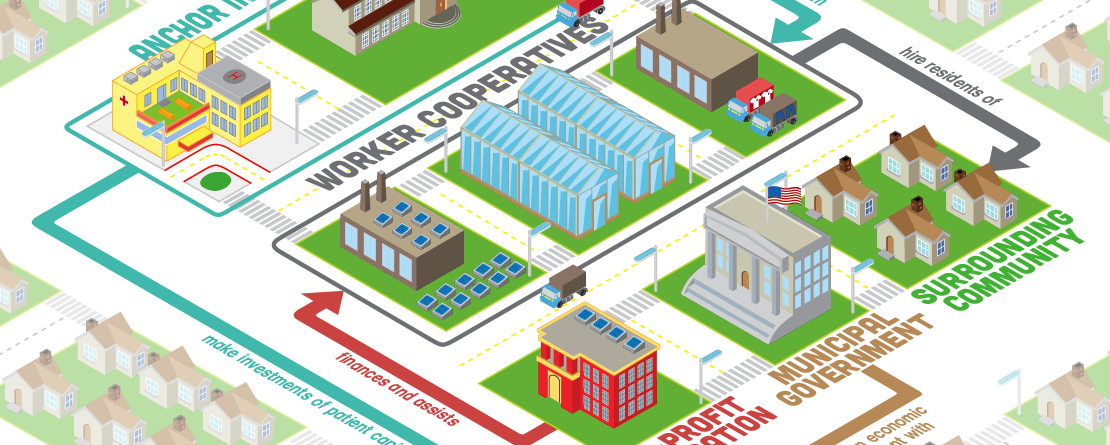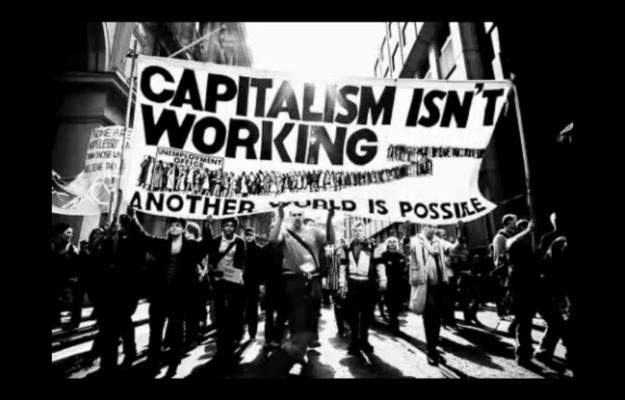01May
07Sep
The Solidarity Economy: A Way Forward for Our De-Futured World
The Solidarity Economy: A Way Forward for Our De-Futured World Julie Matthaei, Wellesley College Matthew Slaats, University of Virginia School of Architecture Abstract As society contends with the ongoing economic, environmental and political crises perpetuated by racist patriarchal ecologically-destructive capitalism, there is a need to look beyond forms of inequality to...
27Oct
Solidarity Economy 101 Slides
The Resist and Build Education Circle developed a Solidarity Economy 101 workshop, with significant contributions from Emily Kawano, Mike Strode, David Ferris, and April Taylor. Hundreds of people from across the United States and the world have participated in various versions of this workshop. We...
01Dec
Event: Reimagining Our Economy for Collective Wellbeing 12/9
Last Chance to Register! Advancing Collective Wellbeing Series Virtual Event | Thursday, December 9th, 10:30AM-1:00PM CT You may have seen the phrase, “Economic Wellbeing,” popping up in your newsfeed on issues from global poverty, to the governmental response to COVID-19, to the relationship between where someone is born...
19Aug
Solidarity Economy – What & Why [Recording]
Link: https://www.youtube.com/watch?v=E4AV2p4FsBI The California Progressive Alliance believes that a better California is possible by reclaiming our government from the corporate interests that have overshadowed the voice of the people. The US Solidarity Economy Network has developed a candidate questionnaire to advance 5 key policy proposals that...
07Nov
California Is Burning—Nationalize PG&E
California’s utility, PG&E, has put profits over public safety for too long. The company belongs in the hands of the people.
05Nov
Community Land Trust Movement Imagines Its Future
The gathering, designed to commemorate the founding of the nation’s first community land trust 50 years ago, was held earlier this month at Resora, a 1,638-acre farm (a little over two-and-half square miles of land) located about seven miles from Albany, Georgia—a farm that New...
30Oct
California Just Legalized Public Banks. What’s next?
The new law promises to take taxpayer money back from Wall Street and reinvest it in communities.
28Oct
When a Steady Paycheck Is Good Medicine
American medical providers that collectively spend $50 billion per year are channeling work to local businesses and residents.
10Oct


